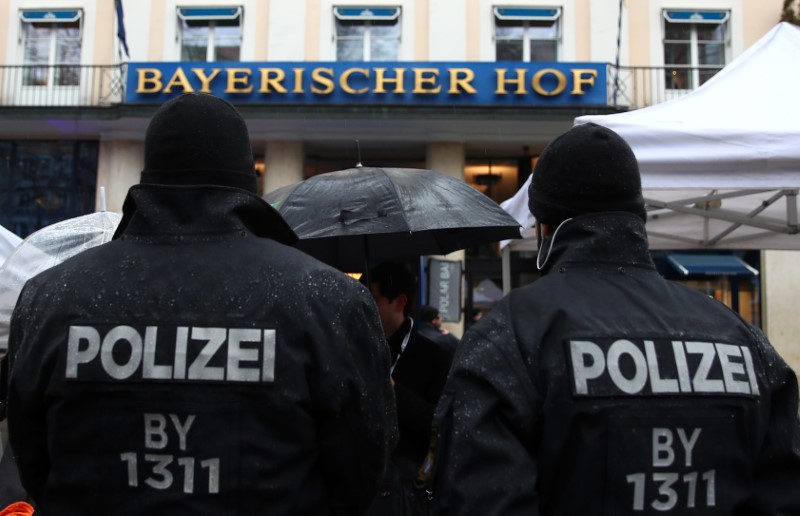BRUSSELS (Reuters) - France and Germany won backing from the European Union's executive on Wednesday for proposals to tighten security across Europe, which include giving more powers to governments to monitor frontiers with other EU states.
Both governments face elections in the coming months against nationalists who say Europe's open internal borders are at least partly to blame for Islamist bloodshed in Berlin, Brussels and Paris. Their interior ministers wrote jointly to the European Commission this week listing ways to improve public safety.
On Wednesday, EU Home Affairs Commissioner Dimitris Avramopoulos said he welcomed the proposals, describing them as "in line with" the Commission's thinking.
Among suggestions for closer cooperation and better data-sharing in Europe, Germany's Thomas de Maiziere and France's Bruno Le Roux argued for a change to EU rules to allow states to more easily impose national frontier checks inside the 26-nation Schengen zone, and for longer than is now permitted.
"Security and freedom are two sides of the same coin. Instead of relying on catchy populist slogans, we should continue, and deepen, the ongoing work on internal security to better protect European citizens," the two ministers said.
The mass influx of migrants via Greece in 2015, as well as deadly attacks in three European capital cities, saw the German, French and other governments slap new controls on borders that had been barely policed for decades, raising questions about the survival of one of the EU's most prized achievements at a time of mounting popular disillusion with the bloc in general.
Schengen rules are due for review and meanwhile governments and the Commission have found ways to maintain the controls if necessary on security grounds. But the two ministers suggested both extending possible exemption limits and allowing more frontier checks even in normal circumstances.
They did not give details. Other elements of the letter stressed demands for more cooperation in tracking the movements of terrorism suspects. Some of the militants who struck in Europe in the past 18 months crossed many European borders.

The ministers urged rapid implementation of agreements, such as EU states exchanging airline passenger data and instituting systematic checks on the identities of not just foreigners but also EU citizens crossing Schengen's external borders.